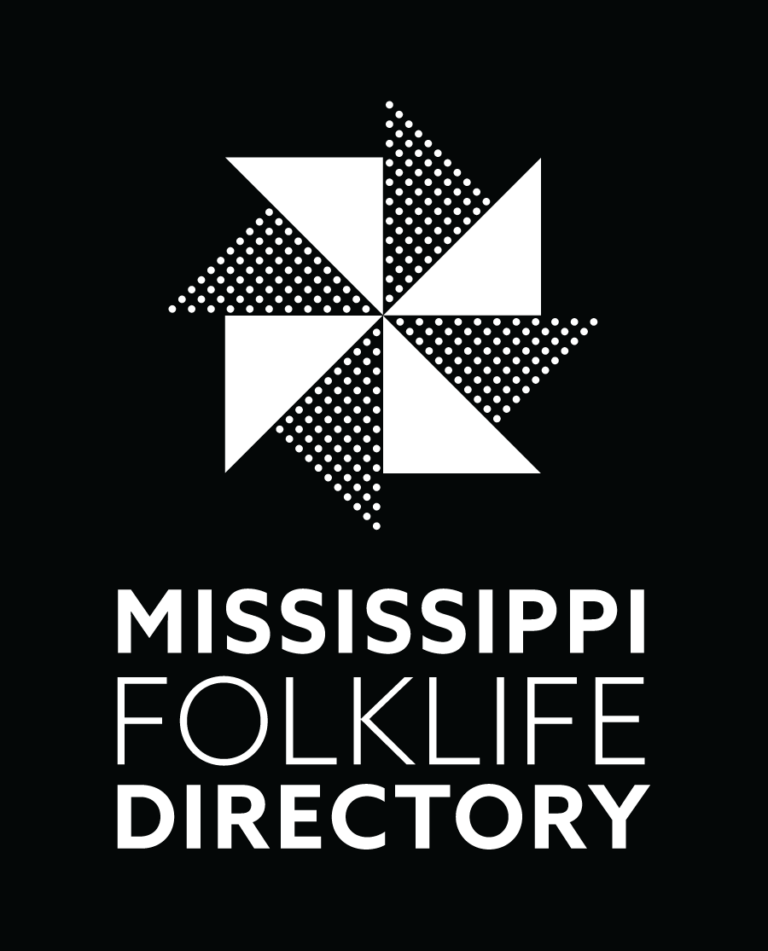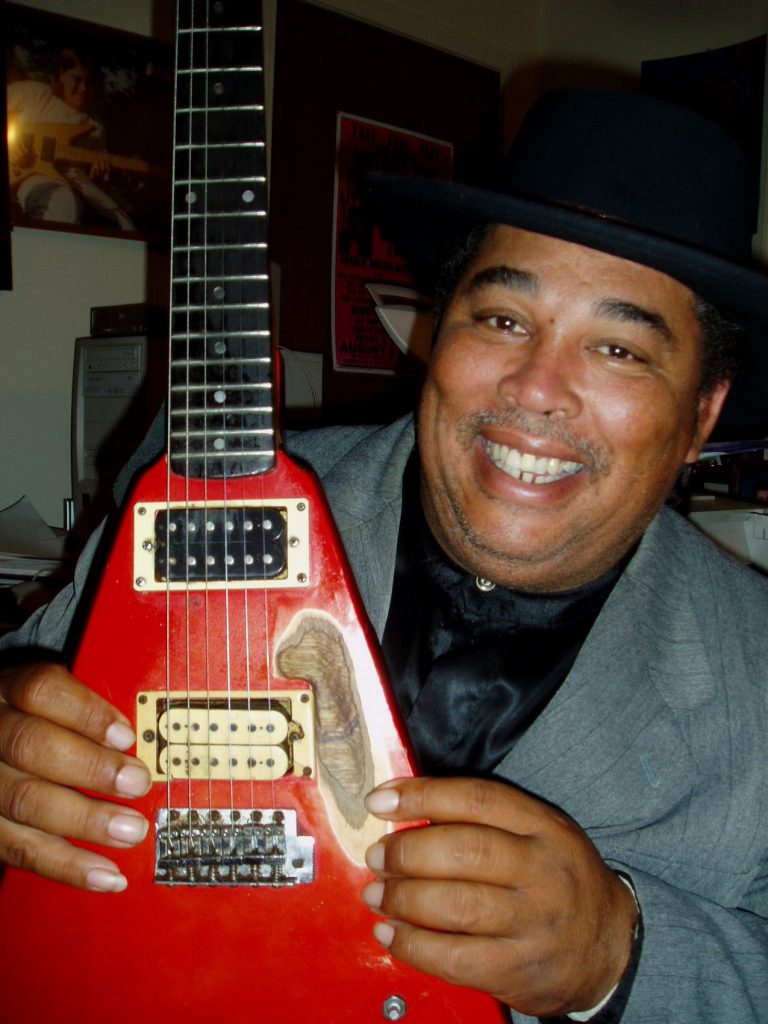Blues guitarist, vocalist, and bandleader John Horton was born in Arcola in 1959. His family initially lived in Holly Ridge, and then moved to the outskirts of Greenville, where he currently resides. He grew up with his father, who worked as a bulldozer driver, a job that Horton has had since shortly after graduating from high school.
His father, also named John Horton and known as “Farmer John,” played guitar as a young man with bluesmen including Eddie Cusic and James “Son” Thomas. He quit playing for many years, picking up the instrument again when his son was in his teens. When Horton was a child, his father often took him to the Chicken Shack, just outside Greenville, to see artists including Smokey Wilson and Roosevelt “Booba” Barnes. It was only after seeing his father return to playing, though, that Horton was inspired to take up the blues. “Because I wanted to be like him, just like the bulldozer,” he explains.
Horton learned the basics of guitar largely through observing his father, and then later trying to figure things out on his own. His father usually played alone, with a slide, and often in an unconventional tuning (“cross Spanish”), while Horton’s preferences were always toward a more modern band style, and he has never tried to master slide playing. His learning was also aided by tape recordings he made of records on local jukeboxes by the likes of Muddy Waters and Howlin’ Wolf. His main influence, as suggested by his Flying V guitar, was Albert King, and he says that he was so caught up with learning older styles that he didn’t bother learning more modern music.
Horton began spending a lot of time at a juke in the country run by his cousin and hanging out with veteran artists including Willie Foster, T-Model Ford, Sam Carr, and Frank Frost. His peers often called him “old young man” or a “young old man,” but he eventually found several to form his first trio, which remains his preferred format. He occasionally backed his father on bass at house parties, and over the years his father would sit in with Horton’s trio for several songs. In 1998 his father recorded a CD, Wrong Doers Respect Me, for Fat Possum Records, who renamed him “Johnny Farmer.” Shortly thereafter he renounced blues for the church.
Horton’s trio initially played at juke joints in the region for minimal compensation, but eventually began making considerably more serving as the back-up band—and opening act—for veterans including Little Bill Wallace, Willie Foster, and Mamie Davis (aka Mamie Galore), who had earlier worked with Ike & Tina Turner and Little Milton and recorded for various labels.
On its own, the trio often played at clubs on Greenville’s historic Nelson Street, notably Perry Peyton’s Flowing Fountain and the Playboy Club, run by bluesman Roosevelt “Booba” Barnes. Barnes served as a mentor to Horton and his cohorts, who would often travel to see the older musician play at regional gigs. Shortly after recording his 1990 CD The Heartbroken Man for Rooster Blues, Barnes shut down his club and moved to Chicago, effectively putting an end to the blues scene on Nelson Street.
Horton has never truly considered becoming a full-time musician, largely because he so enjoys working as a bulldozer operator. “A lot of folks compliment me on my playing guitar, and I’m like, man, I’m way better with a ‘dozer than I am with a guitar,” he explains. “That’s for real. It’s a lot of guitar players out there I wouldn’t dare challenge, but a bulldozer, ain’t but one somebody I fear—the one that taught me, that’s my daddy, and I can’t outsmart him.”
He doesn’t drink and has no problem working a 12-hour shift on the bulldozer, playing an out-of-town gig until 3 am, returning to work early in the morning, and then repeating the process for several days. He sometimes encounters problems finding musicians who can keep up with him, and for a period quit playing because of frustrations with running a band. One evening he hired two rhythm sections so he could play non-stop while the others took breaks. “I don’t get tired,” he says. “I just start to be polite about it.”
In performance, the band often accommodates to audience requests to perform vintage soul or contemporary soul-blues standards, but Horton would prefer to play the “dirty blues” of Muddy Waters and sing in a style deriving from Howlin’ Wolf. He also plays the harmonica, which he took up about ten years after the guitar, inspired by Booba Barnes, but the logistics of a trio prevent him from playing it very often.
In 1992 Horton traveled to New Zealand to perform with Willie Foster and has been a regular at all the major blues festivals in the region. He has recorded one self-produced live CD but overall isn’t very interested in recording. In June 2005 he played in Maryland, and recently performed in Houston. His current trio consists of “Wildcat” (Tommy Collins) on bass and Anthony on drums, and occasionally plays with guitarist Kern Pratt.
-Scott Barretta

